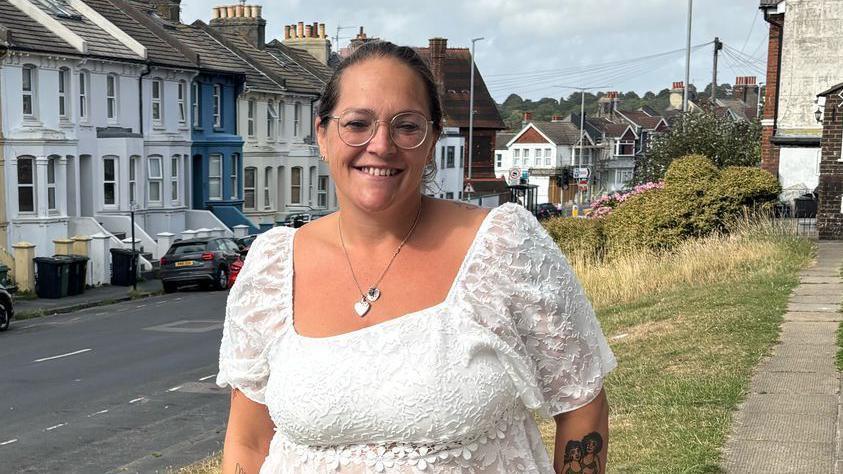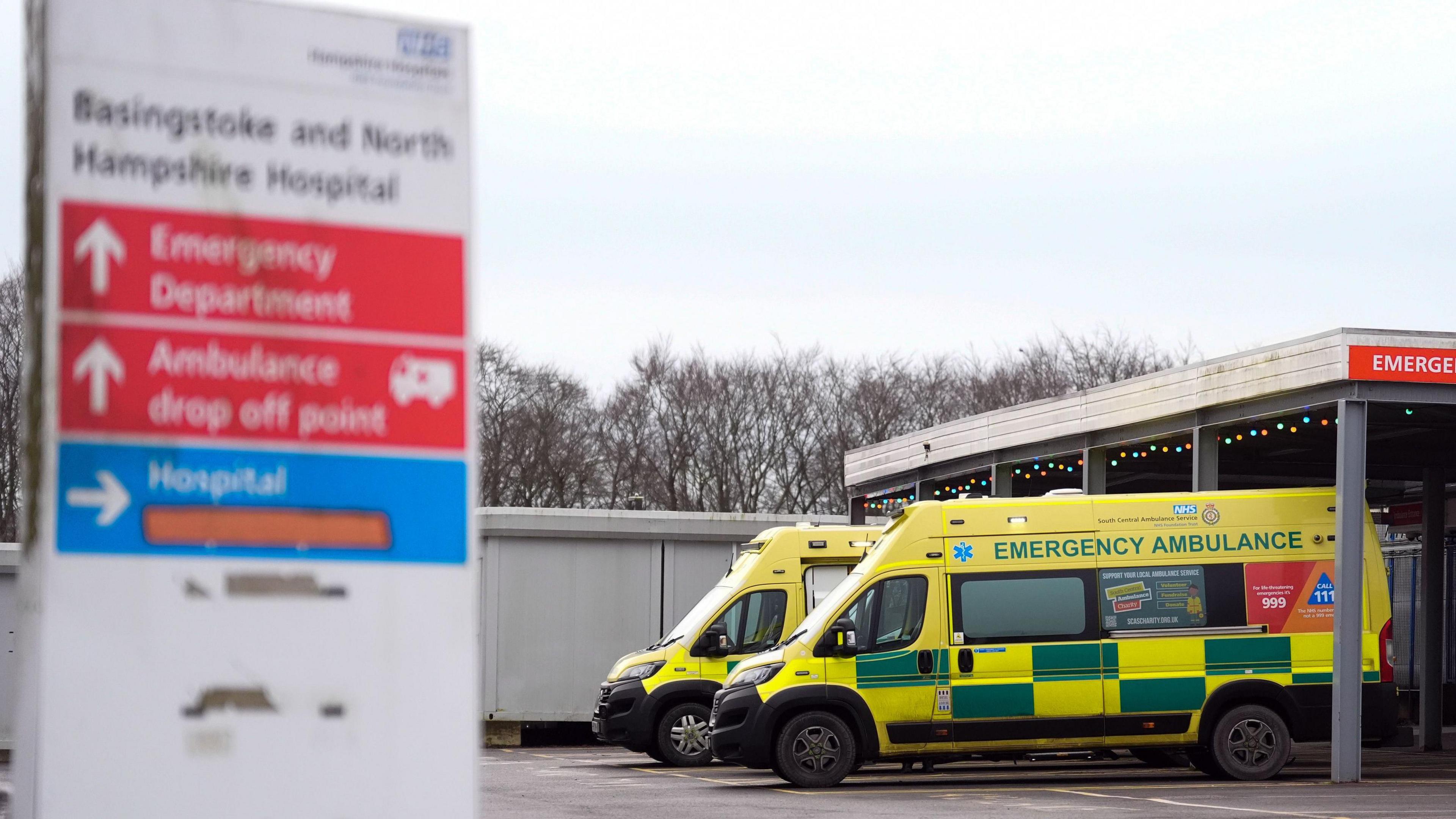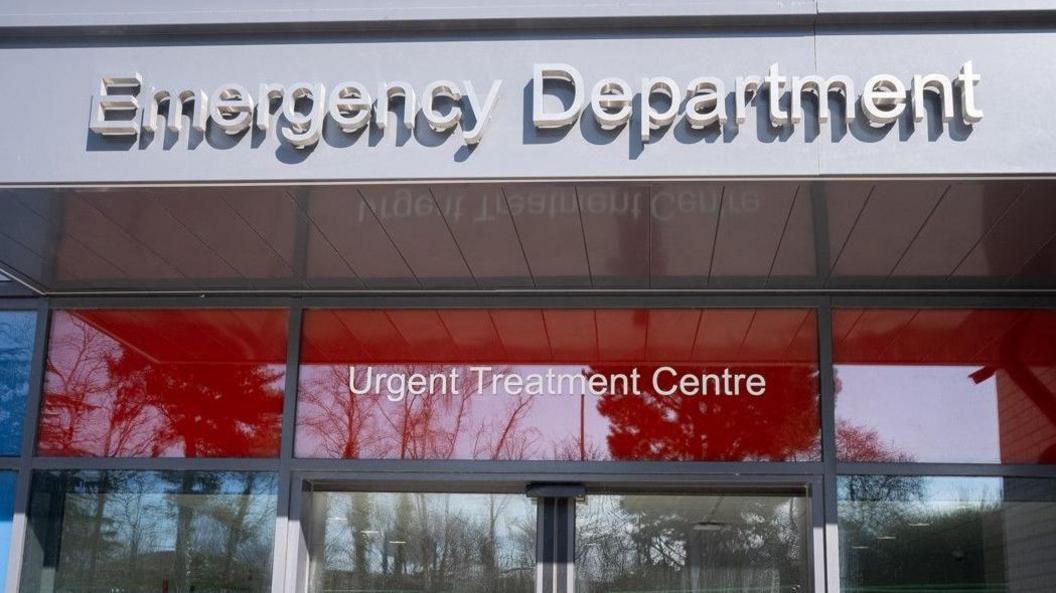Major study examines rare appendix cancer

Kelly is part of a trial that aims dramatically delay the recurrence of a rare cancer
- Published
For the first time a major study aims to get a better understanding of the biology of a rare appendix cancer and dramatically delay recurrence.
Pseudomyxoma peritonei, or PMP, affects up to 400 new patients in the UK a year, with as many as 40% seeing it return after surgery.
In the last 30 years Basingstoke and North Hampshire Hospital has become a world leader in this type of cancer.
PMP originates in the appendix and spreads throughout the peritoneal cavity, which is the space within the abdomen that contains the intestines, stomach, and liver.
Kelly Warwick, 46, is part of the new trial that aims to stop it returning.
It involves what is called a "hot wash" of chemotherapy after the cancerous tumour is removed.
"They put the chemo liquid inside and that stays in for about an hour to an hour and a half, and then they take that out and sow you back up," she explained.
She describes it as "obviously very painful", but said the main aftereffect was "tiredness".
But Kelly said she now felt '"absolutely fine".
"I've recovered really well, I've been very lucky thankfully. I literally had no symptoms from the chemo, there was nothing," she said.

Basingstoke and North Hampshire Hospital has become a world leader in pseudomyxoma peritonei
The hospital's Peritoneal Malignancy Institute will study up to 200 patients who will be given two different treatments.
Doctors will be randomising patients, giving different doses of chemotherapy, and monitoring them to establish how the cancer responds, as well as what impacts it has on a patient's quality of life.
The five-year research study aims to explore how a patient's post-operative prognosis could be improved through greater understanding of chemotherapy treatments, as well as dosage.
The study, which is being carried out in partnership with the Southampton Clinical Trials Unit, will also deliver insight into the genetics of the disease, something which could assist in identifying more targeted treatment for patients.
Consultant Surgeon Faheez Mohamed said the research programme would result in the hospital's "pioneering work" gaining "understanding that will aid innovation in treatment for our patients, and so improving long-term prognoses".
The hospital trust said the results could be life-changing for people suffering with this rare cancer all over the world.
Get in touch
Do you have a story BBC Hampshire & Isle of Wight should cover?
You can follow BBC Hampshire & Isle of Wight on Facebook, external, X (Twitter), external, or Instagram, external.
Related topics
- Published29 May
